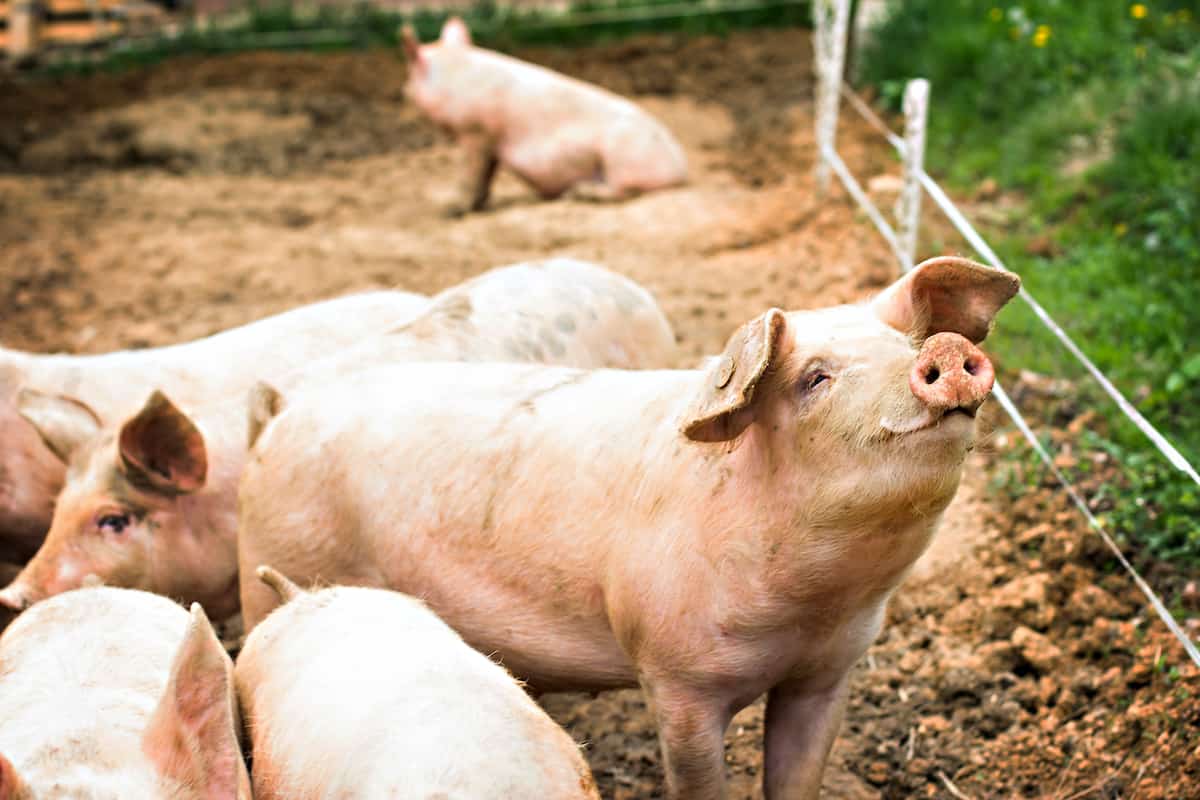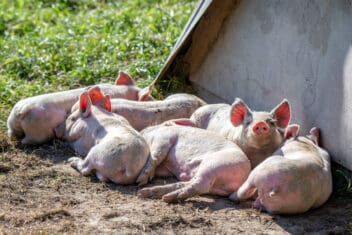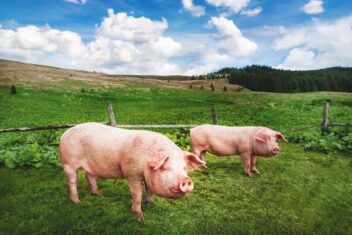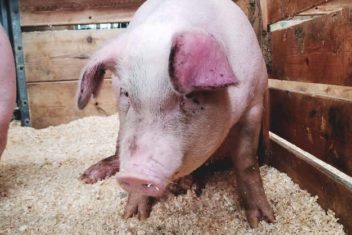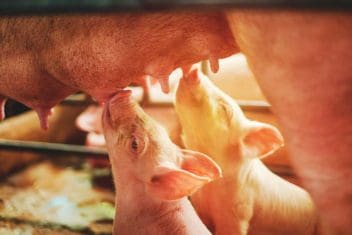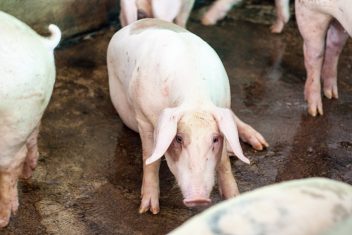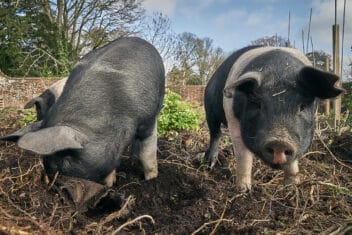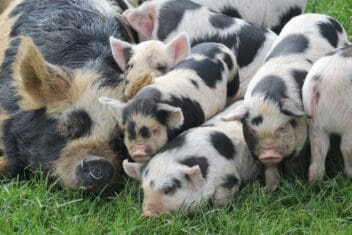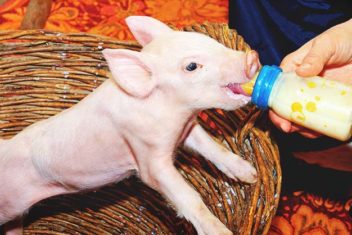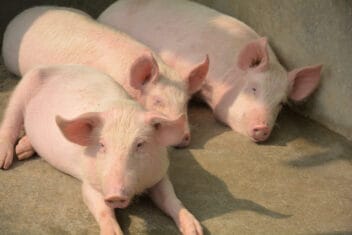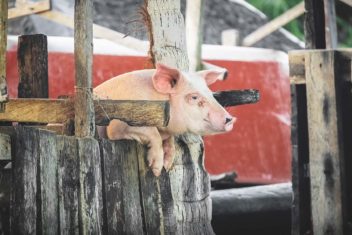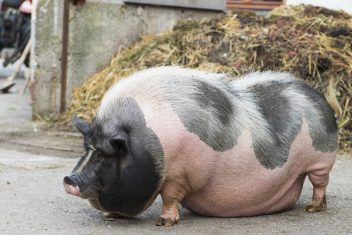Raising pigs is great for so many reasons. Not only can you produce all kinds of delicious meat for your freezer – Bacon! Ham! Pork chops! Sausage! – but pigs are also fantastic at rooting up and clearing large tracts of land. They are nature’s very own rototiller.
However, the downside to raising pigs is that they produce plenty of manure. Pig manure is known for being some of the most potent and most stinky of all the manures. As with many manures, it cannot be used directly on the garden. You’ll need to find other ways to dispose of it.
With a bit of careful thought and planning, you can actually compost your pig manure so it can be used later on.
Composting pig manure is a great way to dispose of the waste and to add nutrients to your garden in a safe, eco-friendly way.
Here’s what you need to know.
Why You Need to Manage Pig Manure
Raising pigs produces a lot of manure. Whether you’re raising pigs on pasture or in a barn, on concrete, it doesn’t matter – they are going to poop. A lot.
There are several reasons why you need to deal with manure on your farm.
Healthy Pigs
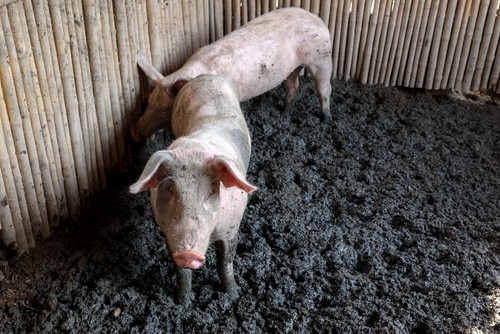
For starters, pigs that live in an environment filled with manure are less healthy than those in cleaner environments. There’s a misconception that pigs are dirty animals.
That’s not the case.
Pigs, when given the opportunity, will not defecate in or near their food or water. Whenever we have raised pigs, we’ve found that they tend to do their business in one corner of the barn, usually as far away from their food and water as possible. They’ll kick dirty bedding out of their sleeping area, too, preferring to sleep on bare dirt than on manure-covered straw.
Pigs can’t sweat, so the manure on the ground will get stuck to their warm bodies and stay with them on the hottest days of summer, compounding the issue even further.
When there is more manure than they can feasibly deal with – a 500-pound breeding sow can produce more than a dozen pounds of manure each day – the manure problems become unavoidable.
You’re going to have issues with parasites and with heavy bacterial loads.
Healthy Environment
Besides serious problems with disease, there will be the issue of odors and flies. Too much manure can make you sick, too, so it’s not a good thing to have around. Not only that, but it’s unpleasant to look at.
Managing manure can be a challenge if you are raising your pigs in confinement, as you’ll have a lot of poop to shovel each day!
There are some simple solutions to what to do with all that manure, though, and one of the easiest solutions is to simply compost it.
Benefits of Composting Pig Manure
Composted manure can be a great benefit to your garden. It can add plenty of nitrogen to the soil, but it doesn’t do so at percentages that are quite as high as that of chicken manure. This means it is a great way to add more balanced nutrient levels without having to worry about burning your plants.
It helps your soil retain moisture, and it will aerate the soil so the plants’ roots can break through more easily.
Risks of Using Pig Manure in a Garden
Pig manure, along with cat and dog manure, should not be used directly in a garden. They can carry parasites, like roundworm, that can survive in the soil and make you sick.
If you want to use pig manure in the garden, it is imperative that you compost it first – and not just any composting, but composting at high temperatures. This will help kill parasitic worms along with bacteria like salmonella, e. Coli, and others that can make you sick.
Composting at high temperatures is the key to benefiting from the “black gold” properties of compost without any of the risks of raw pig manure.
There are lots of people who advocate against using pig manure on edible crops, even when composted. Instead, composted pig manure is a great fertilizer for ornamentals that you don’t plan to eat.
Even when you get your compost super hot, there is still a small chance that pathogens like bacteria and parasites can remain in the soil. While your grandparents likely used composted pig manure in the garden with no problem, it’s certainly something that you would want to steer clear of today.
Instead, use your composted pig manure on your trees, shrubs, and flowers, and lawn.
How to Compost Pig Manure
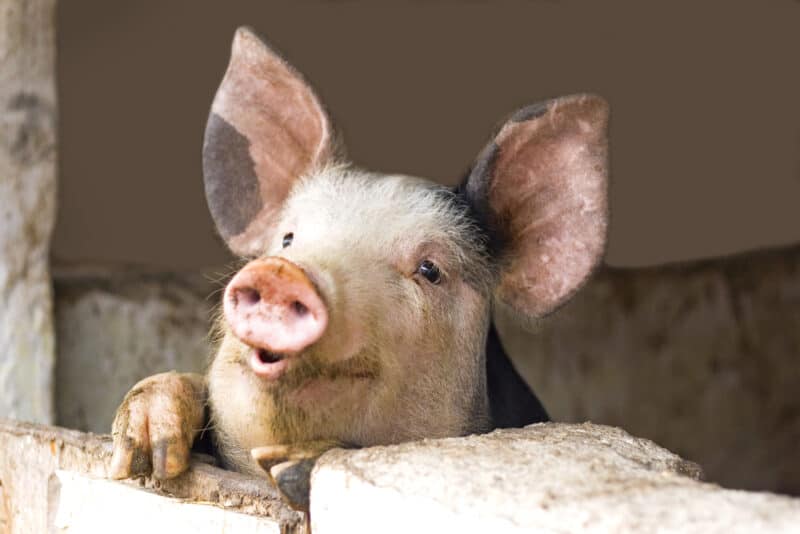
Create a compost pile that has an even mixture of ingredients, including dead leaves, kitchen scraps, weeds, dried grass, and then, of course, your pig manure. Use our handy compost calculator to guide you. Mix everything well and be sure to keep it moist (though not sodden) to start the decomposition action.
At least once a month, head to your compost pile and turn it with a pitchfork. This will supply the compost with air, which is necessary to help get the microbes going. It will also further mix the ingredients, too.
You should let your compost age for a minimum of four months – but ideally more if you are using pig manure. It breaks down slowly and the longer you let your compost age, the better.
Other Options for Dealing with Pig Manure
If you aren’t interested in spending all that time composting your pig manure without being able to use it in a vegetable garden, you have a few other options for managing the manure.
Let Nature Take Care of It
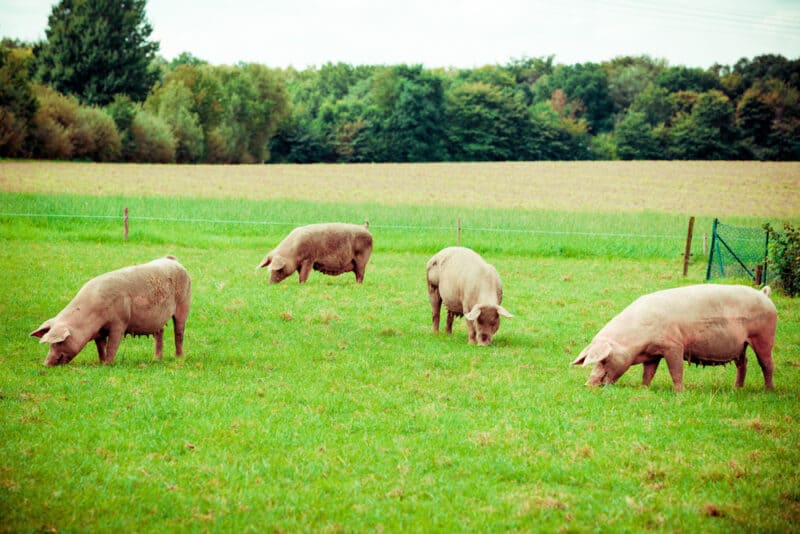
The easiest way to manage pig manure is to get your pigs out on pasture. Avoid raising pigs on concrete floors in barns. The manure will pile up fast. You’ll have to shovel it out by hand (or with a loader) every single day.
By raising your pigs on pasture, you’ll be able to spread the manure around so it can naturally fertilize the soil. You won’t have to do a single thing. Your pigs will be able to get more activity and nutrients from the plants growing in that pasture area, too.
Make sure you also provide them with ample shade, a consistent and reliable supply of water, and apply healthy pasture management practices by rotating pastures as often as possible.
Biogas Fermentation for Pig Manure
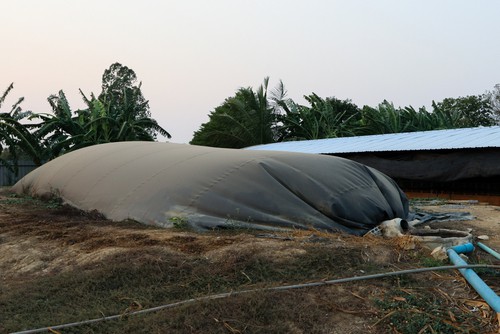
One opportunity that is currently being explored as an option for getting rid of pig manure is biogas fermentation. This has been used as a commercial method of waste disposal (or rather, transferral into a usable form) for quite some time, but in recent years, family-sized biogas units are gaining more attention.
At the surface, these are designed to reduce household waste and to provide clean, renewable energy in the form of biomethane to families. They can be used to digest animal waste and food waste to transfer these products into gas, heat, electricity, and transportation fuels.
The jury is still out on whether pig manure is a viable option for biogas production – some studies say that pig manure by itself is not a great substrate for this since it has so much nitrogen in relation to its carbon. You need to add additional carbon, like straw, to make this effective.
However, it’s an option for dealing with pig manure that holds promise as the research continues to evolve.
Sell it…
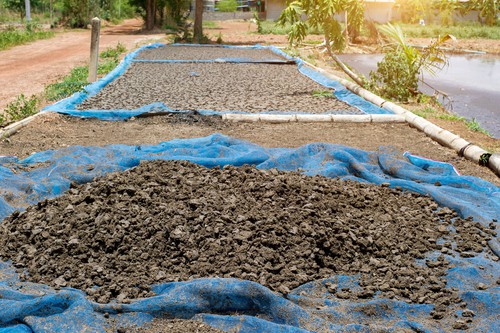
In some places, you may be able to sell your pig manure, too. Pig manure can potentially be sold to a number of entities. However, it’s important you contact your local agriculture field office to discuss the laws that regulate manure sales in your state.
Should You Compost Pig Manure?
Ultimately, composting pig manure is one of the easiest ways to get rid of your excess manure. Just make sure you get it nice and hot. Avoid using it on your edible veggies, and you’ll be good to go!
